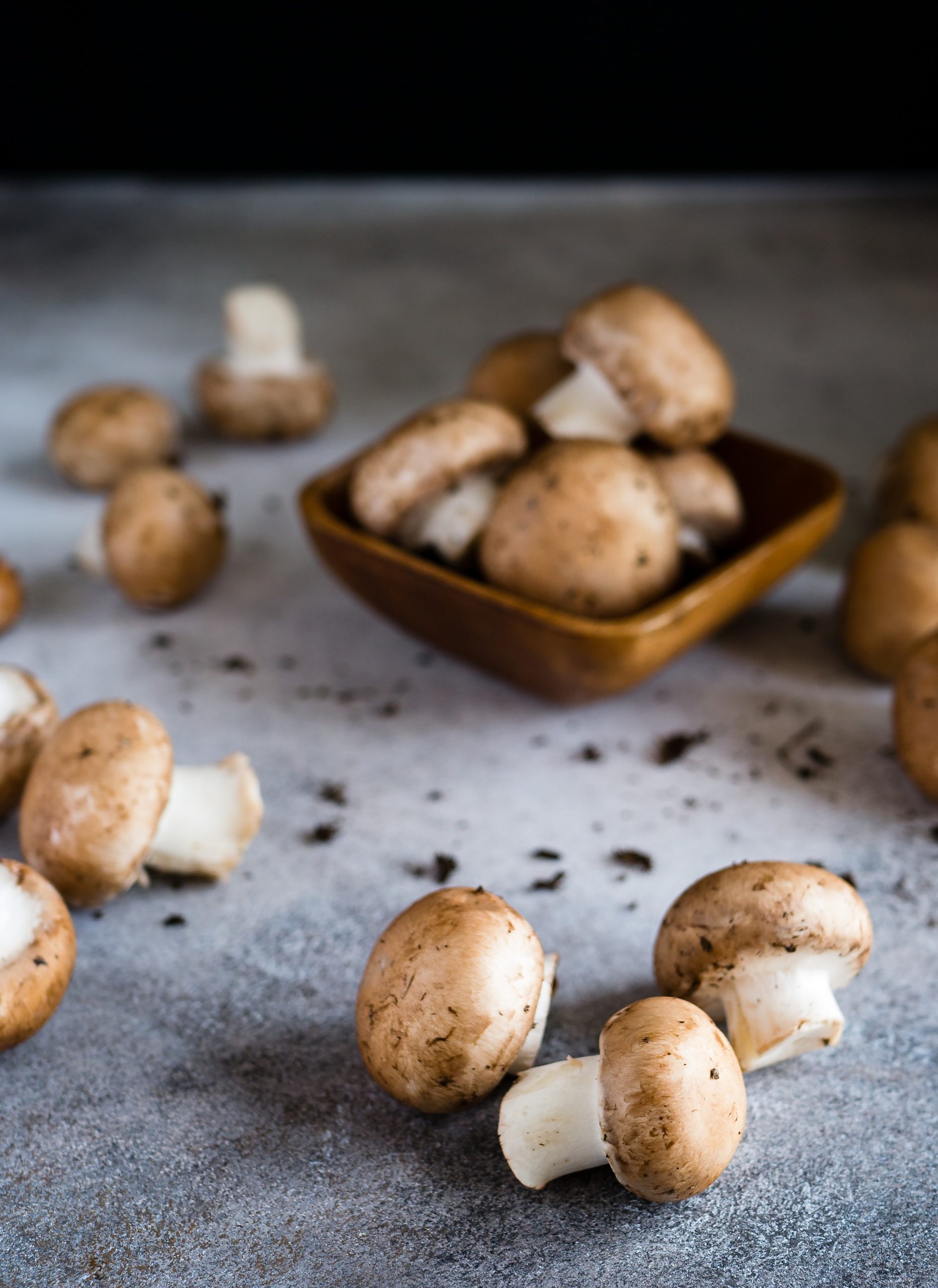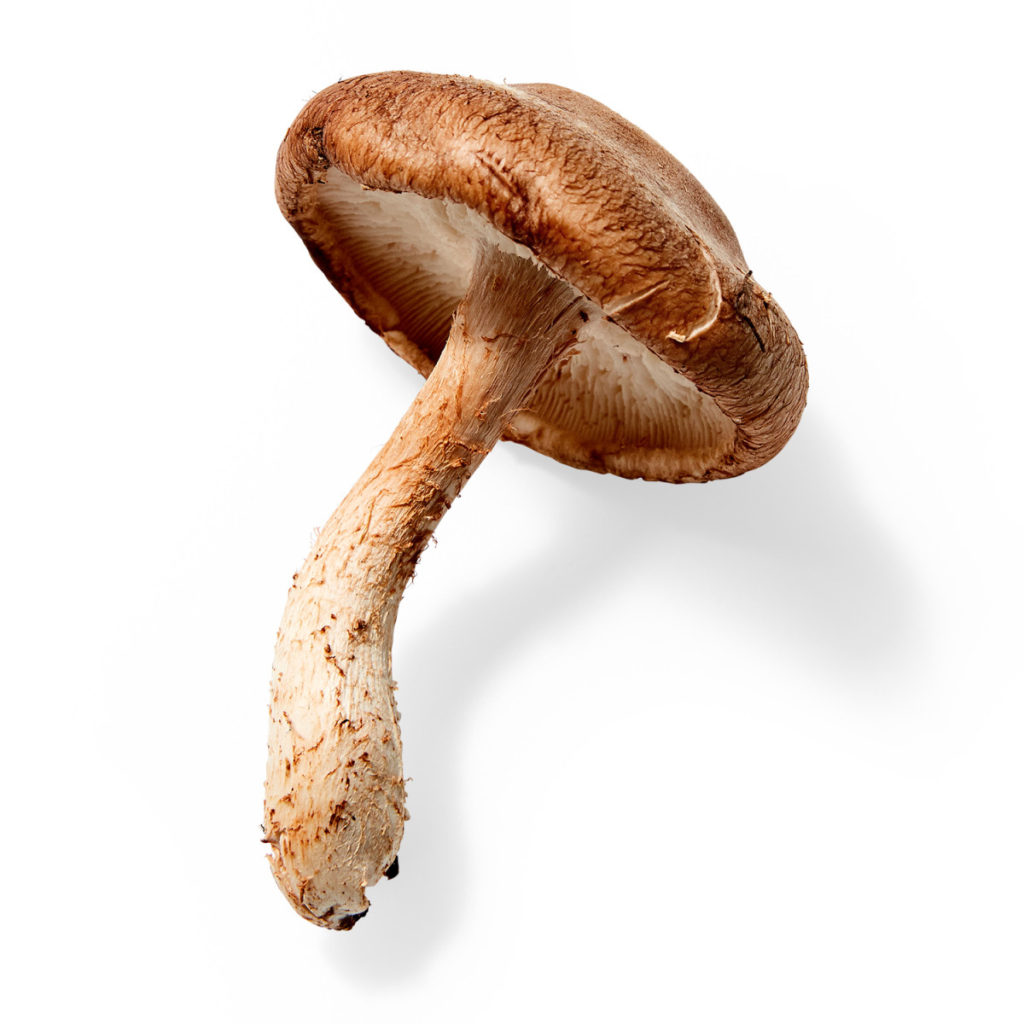Eating mushrooms can be a reliable and tasty way to get the vitamin D that’s essential to our bones, our immune systems and mental well-being. Here, I offer some important information that will help you maintain your vitamin D levels in part through regular mushroom consumption.
Know Your Supplier
Some factors that influence the vitamin D content in fungi include: the type of mushroom, whether or not it was grown under UV light, and the length of time it has spent growing exposed to ultraviolet light.
Don’t depend on store-bought mushrooms as a reliable source of vitamin D because they’re usually grown in the dark. One study showed that button, shiitake and oyster mushrooms grown in the dark provided less than 40 i.u. of D2 per 3-5 ounce serving. However, the same type of mushrooms grown under daylight conditions can produce up to 400 i.u. per serving of the same size. What’s more, is that those grown under UV lamps are capable of producing even higher vitamin D levels. These are more often produced by dedicated growers of specialty mushrooms and may be available at local farmers’ markets.
Vegans at Higher Risk of D Deficiency
While vitamin D is virtually absent in plants, there are animal sources like fatty fish, organ meats and egg yolks that do naturally contain vitamin D-3 (cholecalciferol). Although humans can manufacture our own vitamin D in our skin, this can only happen with adequate sunshine exposure—and living anywhere north of Georgia, USA between the coldest months from November and February means we make next to no vitamin D during this time period. These two limitations can make vegans particularly vulnerable to vitamin D deficiency. In general, all Canadians run the risk of the D deficiency problems that are associated with depression and poorer outcomes with infections, as well as the bone diseases osteomalacia and osteoporosis. Fortunately, mushrooms can be a regular part of a wholesome diet for vegans and omnivores and offer varying amounts of vitamin D-2 (ergocalciferol).
Vitamin D2 vs. D3?
Dr. Michael Holick, MD and author of The Vitamin D Solution, says the form of vitamin D found in mushrooms has been shown to be just as bioavailable (i.e. useful) to humans as its animal-sourced counterpart—D3. That is to say that they are equally effective is raising blood levels of the vitamin. So, those who choose to avoid animal products need not worry about the type of vitamin D they are consuming.
Will cooking destroy Vitamin D?
Happily, no! This is good news because mushrooms are not only easier to digest when cooked—the other beneficial components within them become more absorbable during the cooking process. Vitamin D is quite heat-tolerant, and fat-soluble—so cooking your mushrooms in butter or coconut oil will draw the vitamin out into your cooking sauce. So, be sure not to discard the cooking base when serving up your mushrooms. Enjoy!
References
Canadian Cancer Society. Eating well extras to consider. Accessed October 19, 2021.
Cardwell G, Bornman JF, James AP, Black LJ. A Review of Mushrooms as a Potential Source of Dietary Vitamin D. Nutrients. 2018;10(10):1498. Published 2018 Oct 13.
Davey GK, Spencer EA, Appleby PN, Allen NE, Knox KH, Key TJ. EPIC-Oxford: lifestyle characteristics and nutrient intakes in a cohort of 33 883 meat-eaters and 31 546 non meat-eaters in the UK. Public Health Nutr. 2003;6(3):259-269.
Holick, Michael F. The Vitamin D Solution. Penguin Publishing Group, 2011.
Holick MF. Vitamin D: a d-lightful solution for health. J Investig Med. 2011;59(6):872-880.
National Institutes of Health: Office of Dietary Supplements. Vitamin D: Fact Sheet for Health Professionals. Accessed on October 19, 2021.

